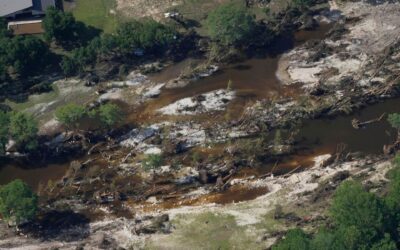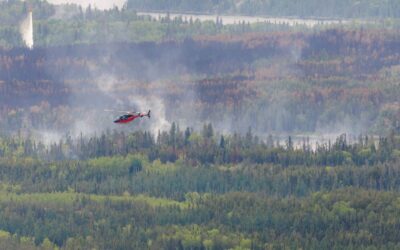COVID-19 Recovery series
As the country moves towards economic recovery from the pandemic, the Institute considers the policy choices ahead for Canada.
COVID-19 is giving the world a fast-forwarded preview of a dangerously warming planet. The script is a little different – decades of slow-growing realization have been squeezed into weeks – but the narrative arc is similar. Since January, we have seen in real time the progression of attitudes: Deny the facts. Downplay the risks. Then balk at the cost.
And finally—take action, and responsibility, to protect human lives.
Climate change is like COVID-19 in slow motion, but with vastly greater consequences. Each poses an existential threat at global scale—not perhaps of literal extinction but of unprecedented disruption of our way of life. In each case, the early signs were easy to ignore but the consequences accumulated exponentially.
In each case the cost of prevention, or at least of early intervention, is vastly less than the cost of the eventual consequences. That is characteristic of all exponential phenomena: they sneak up on you, fast. As every country in the world has now discovered, the very best time to have taken decisive action to contain the current pandemic would have been when they had only a few confirmed cases – or ideally, even earlier than that.
And in the case of both COVID-19 and climate change, there have been remarkable parallels in how people have reacted. First, there is denial, with some even claiming that the whole thing is a hoax. But when the reality can no longer be denied, the magnitude of the threat is downplayed. Then, when the scale of the threat simply must be acknowledged, some argue the cure will be worse than the disease. Finally: there is acceptance and society takes the action it must, but at a cost in lives and money that has been exponentially magnified by the delay.
Attitudes toward Covid-19 have transitioned through these stages within barely three months. And here, unfortunately, is where the similarity between the pandemic and climate change ends. It’s taken decades for our attitudes to evolve past denial to the point where many governments, industry and individuals have started taken serious action. This delay has cost us, however, and almost all countries are now playing catch-up.
The difference in the time scale of reaction is deeply rooted in a human psychology that has evolved to prioritize immediate threats. After all, as the British economist John Maynard Keynes famously said, in the long run we’re all dead.
While the impacts of Covid-19 and climate change may each grow exponentially, the relative size of the exponents matters hugely. We are emotionally wired to respond to a doubling in three days, but not in 30 years. That is why the metaphor of a “war” resonates in the case of a pandemic, but not in the case of climate change.
In fact, the scale of the reaction to Covid-19 can only be compared with the mobilization in World War II.
To address Covid-19, politicians have been quick to say: “We will spend whatever it takes.” By the end of March, the G20 countries had made spending commitments equivalent to US$5 trillion, equivalent to 7.4 percent of 2019 G20 countries’ gross domestic product.
Imagine what that could buy, extrapolated globally, to combat climate change.
It is easy to be cynical about the scale of the response to climate change to date. But there is cause for profound hope. Covid-19 has brought the entire world together in a common struggle in a way that most people alive today have never experienced.
In many cases, deep divisions have been put aside. Collective action has materialized spontaneously and across borders. Individuals have made profound sacrifices. We have understood that the logic of globalization implies that by helping others, we help ourselves. We have finally turned the cliché—“We’re all in this together”—into concrete action, worldwide.
So ask yourself—is there any other common challenge to which this new found wisdom might be applied?
COVID-19 Recovery – More of this series





